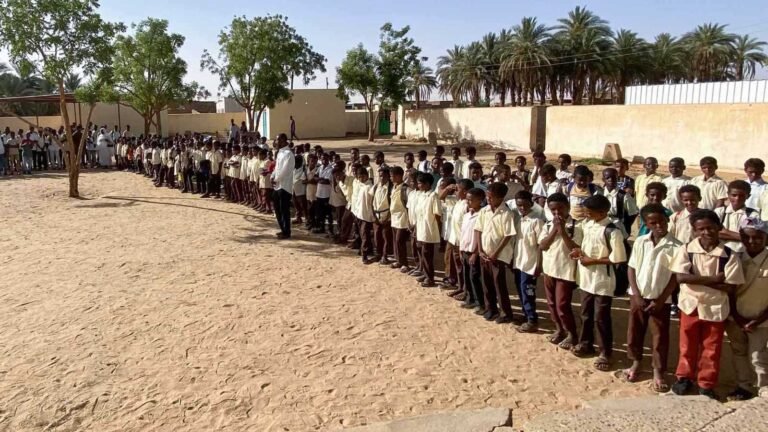Khartoum, Sudan – The war deprived three-quarters of Sudan’s children of school age from going to school.
The information was reported by Save the Children on Thursday.
This comes as fighting has continued across Sudan for more than two years.
The organization said in a report that 13 million children out of 17 million of school age cannot go to school.
This is one of the worst education crises in the world.
She also added, “More than half of schools in Sudan remain closed due to the war”.
While one in ten schools has been converted into a shelter for displaced people.”
Illiterate children
Director of Save the Children in Sudan, Mohamed Abdel Latif, said that it is easy to ignore education as a priority in a time of crisis.
But as the conflict prolongs, children lose the most important years of education. These are years that they will never be able to regain.
This means that some of these children will never learn to read and write.
He also warned that if the war continues, millions of children will not be able to return to school. This exposes them to risks in the short and long term.
Including displacement, joining armed groups and sexual violence.
Some cities in central and northern Sudan have witnessed relative calm in recent months since the fighting subsided in May.
But despite the return of more than two million displaced people to their cities since the beginning of the year, according to the United Nations, infrastructure continues to suffer destruction. Schools and hospitals continue to be closed and there are frequent power outages.
It is noteworthy that Sudan is witnessing one of the worst hunger and displacement crises in the world.
Some displacement camps, especially in the west of the country, suffer from severe overcrowding, famine, and the spread of cholera infections. This occurs alongside the absence of health care and basic services.
The conflict erupted between the army and the Rapid Support Forces in April 2023 and quickly divided the country into spheres of influence.
So far, it has killed tens of thousands, displaced more than 13 million, and destroyed civilian infrastructure.

